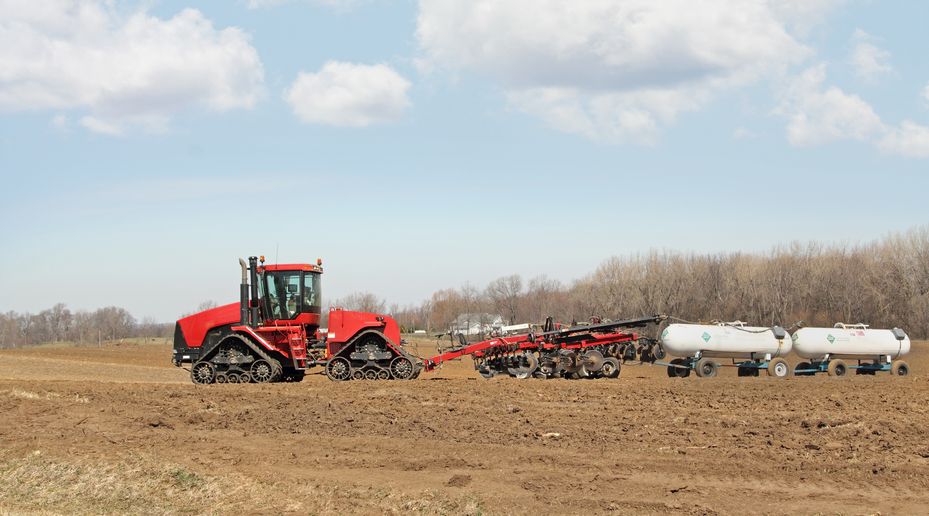
A farming union has criticised the position taken by Government on ammonia emissions, saying that there has been no progress towards finding a solution.
The Ulster Farmers' Union (UFU) has written to the Department of Agriculture (DAERA) permanent secretary Noel Lavery to raise its concerns surrounding "poor" levels of communication and lack of knowledge surrounding the emissions.
Ammonia is a pungent gas produced in relatively large quantities from animal waste, concentrations of which are greatest in areas with the most livestock farming.
According to DAERA, when released into the atmosphere, it increases the levels of air pollutants that are harmful to human health.
Agriculture is the dominant source of ammonia emissions, making up 93% of Northern Ireland’s current emission levels.
The UFU said that despite this issue being raised with DAERA officials back in May 2017, there has been little movement to date.
UFU President Barclay Bells said: “DAERA are well aware of our concerns around the science used in assessing ammonia. They have committed to investigating this further through their research programme, however, this will take time.
“The communication with the industry has been extremely poor and the majority of farmers are completely unaware of the problems it presents.”
'Challenge'
The UFU said it recognises the need to deal with ammonia emissions, and said it is eager to see the recommendations from the Sustainable Agricultural Land Management Strategy for tackling this issue, which are to be published soon.
“No doubt it will be a challenge but we believe that Northern Ireland Environment Agency (NIEA) is better adopting a long-term approach where government and industry work together to tackle ammonia emissions. A similar approach has already been successfully used to address greenhouse gas emissions,” says Mr Bell.
The immediate issue of concern is how the department deals with agricultural planning applications that are requiring ammonia assessments.
Some of these are FBIS applicants but it is likely that the majority will be outside of this scheme.
“NIEA’s stonewalling is not helping to address the overall ammonia problem, instead it is hindering business development,” said the UFU president.
“Many farmers are choosing to withdraw their applications or to continue with construction outwith the planning process, adding significant cost, stress and ultimately delays. We have emphasised the seriousness of the situation to DAERA and that an urgent resolution must be found.”
According to Government figures, Northern Ireland currently contributes 12% of the total UK level of ammonia gases.
